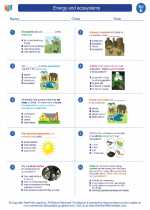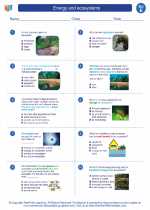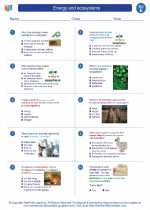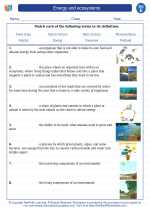Energy and ecosystems -> temperature
Temperature
Temperature is a measure of how hot or cold an object is. It is a fundamental aspect of the physical world and is used in various scientific disciplines including physics, chemistry, and biology.
Scales of Temperature
There are several scales used to measure temperature, with the most common being Celsius (°C), Fahrenheit (°F), and Kelvin (K).
Celsius (°C)
The Celsius scale is based on the freezing and boiling points of water, with 0°C being the freezing point and 100°C being the boiling point at standard atmospheric pressure.
Fahrenheit (°F)
The Fahrenheit scale is also based on the freezing and boiling points of water, but uses different reference points. 32°F is the freezing point and 212°F is the boiling point at standard atmospheric pressure.
Kelvin (K)
The Kelvin scale is an absolute temperature scale where 0K is absolute zero, the lowest possible temperature where all molecular motion ceases. The Kelvin scale is commonly used in scientific research and calculations.
Effects of Temperature
Temperature has various effects on matter, including changes in physical state (solid, liquid, gas) and chemical reactions. It also affects the behavior of gases, fluids, and the expansion and contraction of solids.
Measuring Temperature
Temperature is measured using devices such as thermometers, thermocouples, and infrared thermometers. The choice of the measuring device depends on the specific requirements of the measurement and the range of temperatures to be measured.
Study Guide Questions
- What are the three common temperature scales and their reference points?
- Explain the concept of absolute zero and its relation to the Kelvin scale.
- How does temperature affect the physical state of matter?
- Discuss the importance of accurate temperature measurement in scientific research and everyday applications.
[Temperature] Related Worksheets and Study Guides:
.◂Science Worksheets and Study Guides Fifth Grade. Energy and ecosystems

 Worksheet/Answer key
Worksheet/Answer key
 Worksheet/Answer key
Worksheet/Answer key
 Worksheet/Answer key
Worksheet/Answer key
 Vocabulary/Answer key
Vocabulary/Answer key
 Vocabulary/Answer key
Vocabulary/Answer key
 Vocabulary/Answer key
Vocabulary/Answer key
